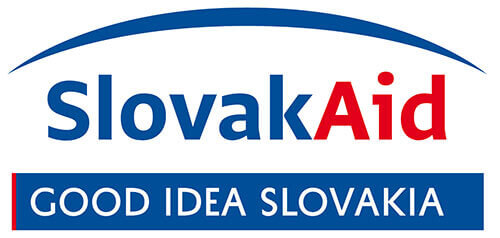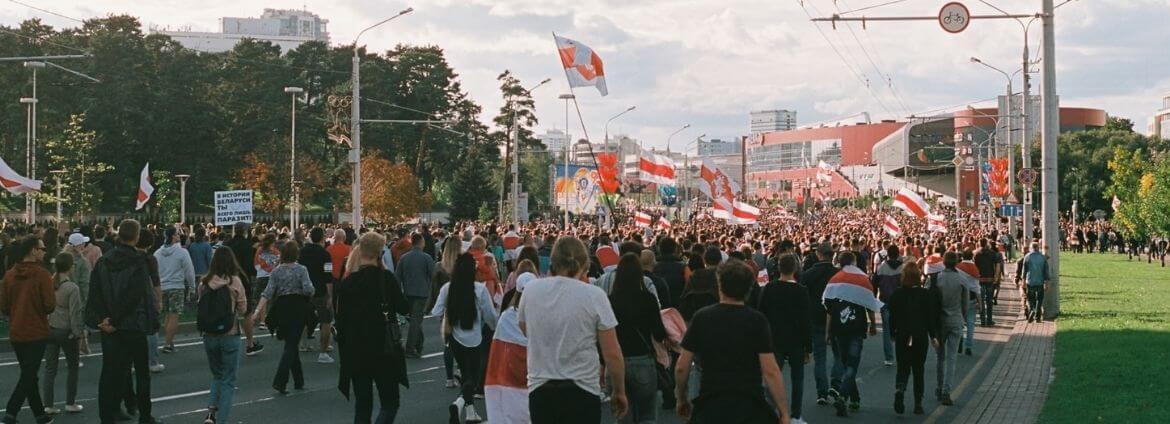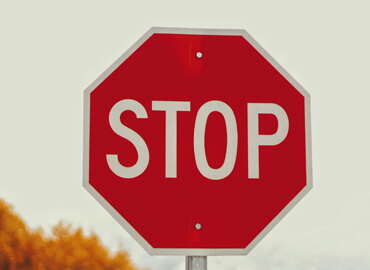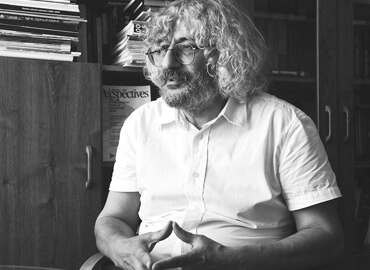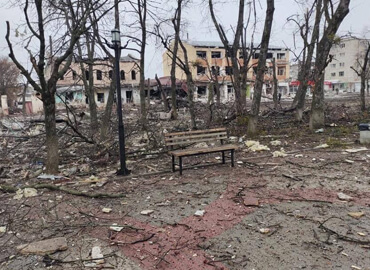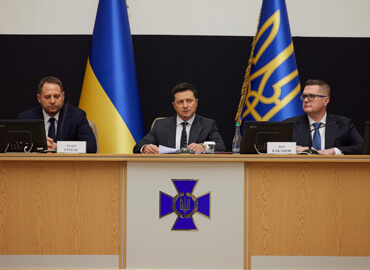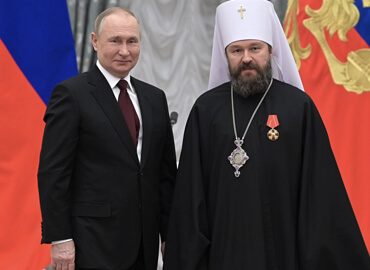At the height of Belarusian protests in 2020, in response to unprecedented police brutality, protesters in Belarus took off their shoes to stand on a bench, demonstrated flowers and funny banners, and in other ways stressed that their protest is peaceful. In fact, this peacefulness has been predetermined by history: Belarusians lived in oppression for centuries, and violent resistance never brought desired results. Don’t take up arms, genetic memory says to Belarusians.
No one even thought of it. The 2020 electoral campaign was extremely inspirational, it delivered a feeling that the change was in the air and about to come. To every step the regime made, the democratic forces responded as though they were ready for every scenario, and their response was even more encouraging. When the main candidates were arrested or forced to leave the country, the three incredible strong women, Sviatlana Tsikhanouskaya, Maryia Kalesnikava, and Veranika Tsapkala, first on behalf of the former presidential hopefuls, and later on their own behalf, ran a super-successful campaign, gathering thousands and thousands of people for their rallies. However, the number of people who came to those rallies does not show what that all was really about.
Behind every rally, initiative, campaign, stood tens, hundreds of people: volunteers, activists, professionals who were willing to help. They worked closely together, dovetailing all the differences, and engaging more and more people in their activities. This resulted in millions of people building horizontal ties both offline and online, wearing white bracelets as a symbol of change, taking photos of their ballots, and waiting for protocols at polling stations.
The campaign rode the wave of long-term trends that were reflected in the World Values Survey. The study showed that Belarusians, in a few years, underwent a prominent shift from the values of survival – to self-expression. In the years before the elections, private businesses grew, NGOs developed, and people were increasingly interested in the Belarusian culture. Although the government denied Belarusians the right to freedom of expression, they were becoming free.
The wave of politicization was the perfect opportunity to self-express and demonstrate one’s political beliefs. People finally recognized soulmates and friends in each other all over Belarus. They showed solidarity in every way: brought bottles of water to election observers and protesters, supported businesses that demonstrated their position, wrote letters to political prisoners, financed strikes and other political events. To facilitate and organize solidarity, political actors and ordinary activists launched initiatives and projects: foundations, communication platforms, assistance-allocating networks. They all were effective and seemed to bring the protest movement closer to victory.
On the other hand, all these structures became the main first target of the regime. Its clampdown on protesters was followed by an onslaught on civil society institutions. The NGO offices were raided, media were declared «extremist», activists and journalists were forced into exile, not to mention that thousands of people have been detained and sentenced to prison, already 900+ of them are recognized as political prisoners.
Despite risks and dangers, most civil society structures keep operating, either from exile or underground; there is still demand for them in the society. Although solidarity is unofficially considered a criminal offense by the government, Belarusians keep supporting each other. Even battered, civil society maintains its horizontal ties, and it is something that the regime can’t ruin.
A survey conducted by Chatham House, as well as one leaked from the Russian VTsIOM, shows that Belarusians’ attitude to the political crisis hasn’t changed significantly over the year; the proportion of democracy- and dictatorship-oriented Belarusians remains approximately the same. However, the mutual misunderstanding and hatred between them continue to grow, and the regime’s actions only worsen this process. Lukashenka’s henchmen destroyed the two media (among others) – TUT.BY and Komsomolskaya Pravda – that linked the two parts of the Belarusian society. At the same time, state-owned media outlets manipulate the news to impact its audience and create an impression that every protester is paid by the Polish or Lithuanian «coordinators» or approves of fascism, while media unofficially controlled by the regime stigmatize Lukashenka’s opponents as «terrorists», «extremists», and call to jail, destroy or even kill them.
Sadly, this happens in 2021, which was announced to be the year of National Unity. Obviously, such attitudes and actions do not help resolve the political crisis but only worsen it. A civil war is something that does not seem impossible now in a country that was previously associated with stability and peace. Moreover, Belarus, given the forced landing of the Ryanair plane and the artificial migrant crisis, has become a donor of instability in Europe. The political crisis was, and still remains, an issue that only Belarusians can solve. But now, it creates problems for the whole region and puts people’s lives in danger. Considering the suspended status-quo in Belarus and the regime’s policy that keeps aggravating the situation, foreign leaders should consider engaging in its resolution more actively – through sanctions, negotiations, and support for Belarusian civil society.
This is not only about Belarus anymore, and not even about regional security. Instead, this is about the sustainability of democracy in the world and universal values.
The article was prepared by a participant of the SlovakAid scholarship program.
